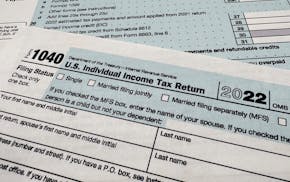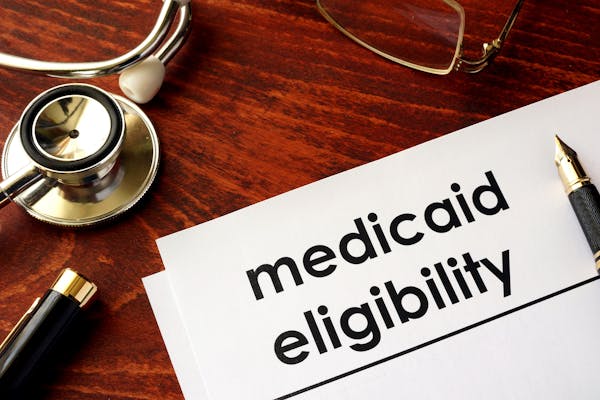Minnesota is pushing back a Medicaid re-enrollment deadline to Aug. 1, buying time for 35,500 state residents whose publicly subsidized health benefits were set to expire in July.
Social service leaders will use the extra month to reach out to people who haven't responded to related notices in the mail, and to spread awareness about the looming re-enrollment requirement for all 1.5 million Minnesotans covered by the Medical Assistance and MinnesotaCare programs.
The 35,500 people who could lose their insurance include those with language barriers, homelessness, or mental or behavioral disorders that underscore their need for continued coverage, state officials said.
"We don't want anyone to lose their health insurance," said Jodi Harpstead, commissioner of the Minnesota Department of Human Services. "Our goal is for every eligible Minnesotan to keep their Medical Assistance."
Thursday's announcement came two days before the original re-enrollment deadline. The termination of the federal COVID-19 emergency declaration in May also ended the policy of automatic re-enrollment in Medicaid, meaning people once again have to show they're eligible for the public insurance program.
In Minnesota, Medicaid is known as Medical Assistance. It covers disabled and impoverished Minnesotans while MinnesotaCare offers coverage to families with incomes at or below 200% of the federal poverty level — which equates to an annual income of $55,500 for a family of four. Both are subsidized by federal and state tax dollars.
As many as 25% of Minnesotans covered by these programs during the pandemic are expected to lose their benefits during the re-enrollment process over the next 12 months. That equates to about 375,000 people, including some who gained higher-income jobs and are no longer eligible and others who remain eligible but missed the deadlines.
State and health insurance industry leaders have been strategizing for two years about how to help these people maintain public benefits or access private plans, said Lucas Nesse, president and chief executive of the Minnesota Council of Health Plans.
Minnesota entered the pandemic with an uninsured rate below 5% — one of the lowest in the nation — and the goal among state leaders is to keep it that way.
"The bottom line is those 375,000 people are eligible for something," Nesse said.
Minnesota uses paper enrollment for its Medicaid programs, which creates challenges because many low-income individuals move frequently and never receive renewal notices in the mail.
The state has added an option for people to upload paper applications, but is still developing a fully online application, said Julie Marquardt, an assistant state human services commissioner.
Pauline Smith, 25, of Brooklyn Center, got a text from the state last month telling her to look for her renewal paperwork, but she said it didn't get redirected to her new address and that she kept getting disconnected from a help line. It was her first renewal, having qualified for Medical Assistance two years ago when she lost her job while dealing with the onset of a mental health disorder.
A Hennepin County adviser helped Smith file her paperwork, then again after the birth of her first child. State benefits helped Smith afford her prescriptions and an emergency surgical delivery, but she is hoping to get a job and maybe workplace coverage.
"Maybe August when the baby is healthy enough for me to go back to work," she said.
Text alerts are among the new state strategies to reach hard-to-find enrollees before their benefits expire.
"We know that a lot of people do have mobile phones, even if they are unhoused," said Chelsea Georgesen, director of government programs and health equity for the council of health plans.
Other strategies include targeting 10 ZIP codes with socially vulnerable populations and distributing information in libraries that are frequented by people with unstable housing. Renewal envelopes are being branded with large blue dots. A lookup tool allows people to learn their renewal dates.
About 60,000 Minnesotans scheduled to lose their state benefits in July filed renewal paperwork ahead of the original deadline.
Some of them found out they're no longer eligible. They can't go back and extend their Medical Assistance coverage through July. However, they have an extended window of 60 days after losing coverage to seek individual plans on the MNsure online market and, perhaps, discounted premiums.
Federal authorities only recently offered states a one-month delay. Michigan announced last week that it was extending coverage without renewals through July.
New Minnesota GOP leaders seek peace with party's anti-establishment wing

Who is Republican Lisa Demuth, Minnesota's first House speaker of color?

Minnesota House GOP, Secretary of State Steve Simon return to Supreme Court
Supreme Court sides with DFL and Simon, says 68 House members needed for floor action

